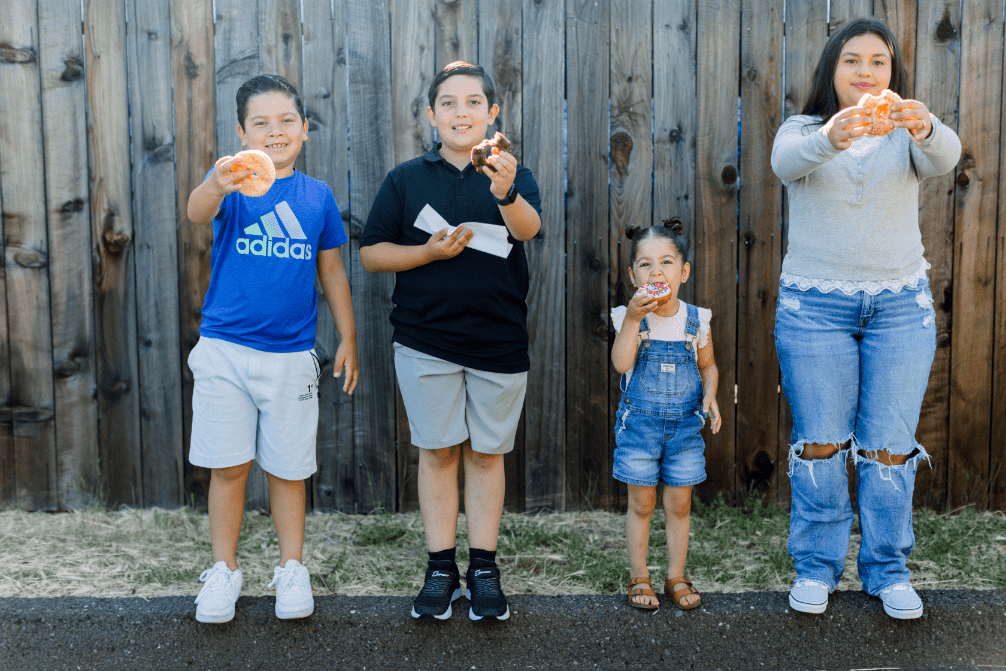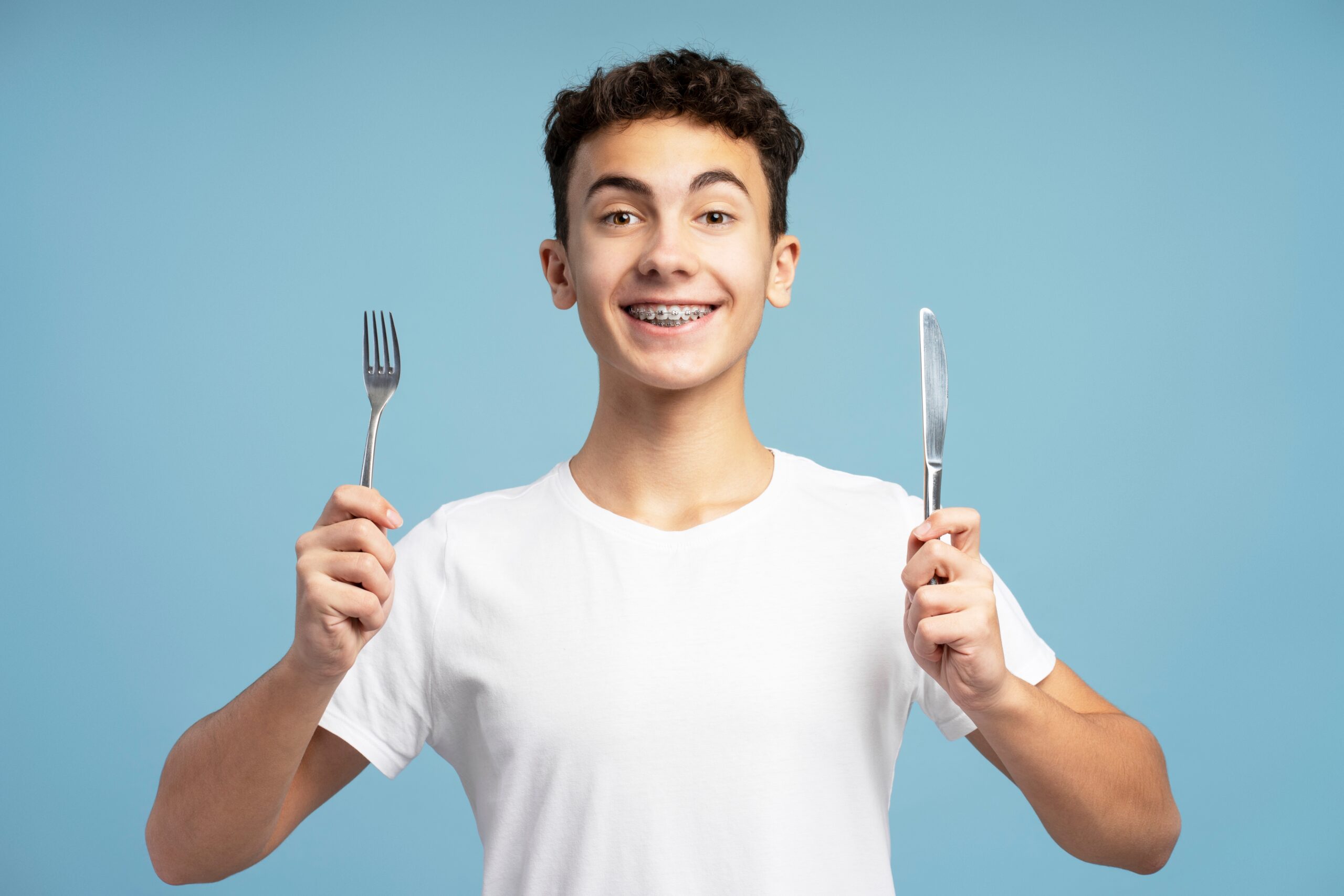This is a very popular question & there are two answers to it. One, what do you eat in the first few days after getting braces placed or adjusted. And two, what do you eat when your teeth aren’t sore, but you have braces. Let’s talk about them both.
What do you eat (& not eat) in the first few days after getting braces placed or adjusted (“tightened”)?
Any time we put new pressure on the teeth, either by first placing the braces or putting new wires or other adjustments, the teeth are going to feel sore. In general, the sorest the teeth are is the morning after your appointment and the soreness typically lasts for 1-3 days. If you’d like to take some pain relievers (like Advil or Tylenol) to reduce the soreness, that’s perfectly fine and most people don’t need to use it for more than a day or two.
During those first few days, you’ll want to be gentle with your teeth and avoid hard foods or foods you have to bite with pressure to chew. And what TO eat are soft foods, especially soft cool temperature foods, that will feel the most gentle.
DO eat: Smoothies, yogurt, oatmeal, pancakes, scrambled eggs, soups, bananas & soft fruits like berries, cooked pasta/potatoes/vegetables, fish, ice cream, popsicles
AVOID at first: anything that requires force to bite down on like chewy bread/rolls, chewy cuts of meat like steak or pork chops, and the items on the to avoid in general list below.
What do you eat (& not eat) once your teeth aren’t sore, but you have braces on?
After the first few days, your teeth won’t be sore any longer, but we do want to be careful that how your eating doesn’t knock your braces off. When a brace breaks, you have to come in to fix it which is more time, an extra appointment, and in many cases makes us take a step back in your treatment which results in a longer treatment time.
There are two main rules: number one, you should avoid hard, sticky, crunchy foods and number two, you should chew small bites of food carefully between your back teeth. If you take too big of a bite, even small foods can cause you to crash your teeth around when chewing and break a brace off your tooth.
I don’t give big lists of foods to avoid because patients sometimes look at the list and think “Oh, my favorite snack isn’t specifically listed! I’m sure it’s fine!” And that’s not always the case. I’d prefer that my patients learn the rules about eating and make good choices.
DO eat: all the above foods are great choices, but you can add in things that are a little harder, especially if they’re cut into small pieces and chewed on your back teeth.
Eat with CAUTION (or avoid): Popcorn – if you choose to eat popcorn, you must eat it one kernel at a time. A whole handful of popcorn will crash around your mouth and the hard kernel part will definitely knock off a brace. One piece at a time should fit between your teeth and not be an issue. Gum – I’d prefer you avoid it, but if you must chew gum, it needs to be the small sugar free type like Trident and definitely not the big pink hard sugary stuff. Most people, if you chew the small sugar free gum carefully, don’t have an issue. However, some people because of HOW they chew get the gum all tangled in their wires and gum isn’t a good choice for them. Soft nuts like cashews – see the thoughts on popcorn above. Soft chips like Lay’s tend to be ok if eaten carefully.
AVOID with braces: Hard & sticky candy, biting into corn on the cob or apples or big pieces of carrot (fine to eat if cut), hard nuts like almonds, bagels/hard rolls/hard pizza crust, ice, hard chips like crunchy tortilla chips or Doritos or kettle chips, hard pretzels, ice cream cones, most frozen things you have to bite into.

In summary, at first, you’ll want to eat soft foods that will feel gentle on your sore teeth. And once that initial soreness has passed, you’ll want to eat carefully so that your braces stay in place and we don’t have unnecessary repair appointments or extended treatment time.
Small bites of food chewed carefully and soft foods are your friends during braces treatment. If you have a specific food you want to ask us about, please let us know. But following the rules listed above should keep your braces safe during treatment.
 Free Consult
Free Consult
